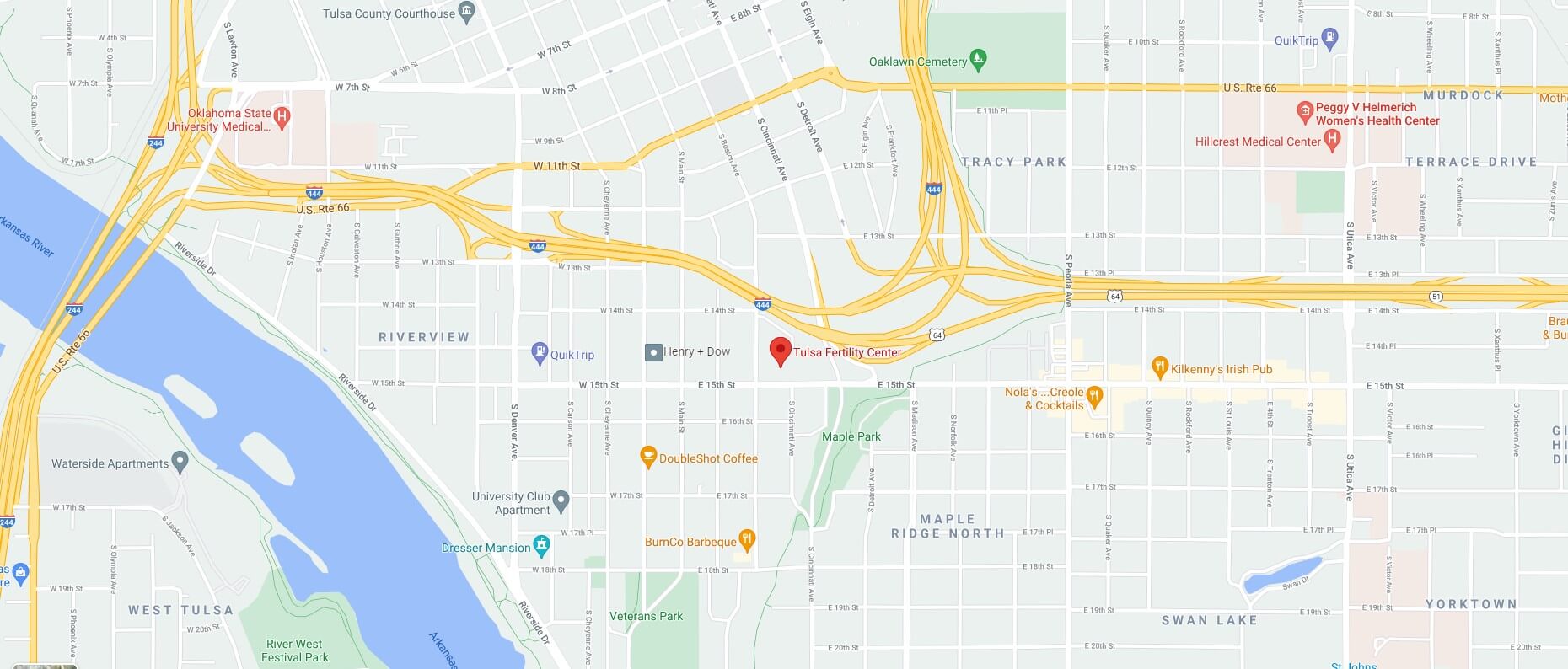Patients who need an advanced fertility treatment to conceive often turn to IVF
Most patients can conceive using basic fertility treatments like ovulation induction medications and intrauterine insemination (IUI). However, our Tulsa fertility doctors will sometimes recommend a more advanced treatment to overcome barriers on the path to parenthood. When this happens, Shauna McKinney MD often suggests in vitro fertilization, or IVF.
Many patients have found success with this treatment at Tulsa Fertility Center. This is thanks to a combination of our doctors’ expertise and our laboratory’s reputation for excellence. Our laboratory director is J. Kevin Thibodeaux PhD, and he works closely with our entire team to help patients bring home healthy babies.
In vitro fertilization is a multi-step process that can help patients become parents
Before recommending any treatment plan, our Tulsa fertility doctors will order fertility testing. If your test results indicate that you would be a good candidate for IVF, you can expect to undergo the following steps.
Ovarian stimulation medications. You’ll take injectable medications to encourage your ovaries to produce multiple eggs at once. During this time, you’ll regularly visit our clinic for monitoring appointments.
Egg retrieval. When your egg-containing follicles are mature, you’ll receive a trigger shot to tell your ovaries to release the eggs. Then, you’ll return to our clinic 35-36 hours later for a short, outpatient egg retrieval procedure.
Fertilization. Your eggs will then be transported to our IVF laboratory. There, Dr. Thibodeaux and his team will fertilize them with sperm from your partner or a donor. They will then monitor the growth and development of the resulting embryos.
Preimplantation genetic testing (PGT). Not everyone opts to have testing on their embryos, but if you do, our laboratory team will take a biopsy from each embryo for testing. The results will tell us which embryos are chromosomally normal.
Embryo transfer. Your fertility doctor will perform an embryo transfer. During this procedure, your doctor will use a catheter (a thin, flexible tube) to place an embryo into your uterus. You’ll then take a pregnancy test about two weeks later to see if in vitro fertilization was a success.
Several different types of patients can benefit from IVF
This advanced fertility treatment can be a great option for many different types of patients. Our Tulsa fertility doctor typically recommends it in the following situations.
- Advanced maternal age (over age 35)
- Blocked or damaged fallopian tubes
- Endometriosis
- Male infertility
- Recurrent miscarriage or treatment cycle failure
- Unexplained infertility
In vitro fertilization is also an option for patients who want our laboratory to perform PGT on their embryos. It’s also necessary for women and men who are using donor eggs or embryos as well as gestational surrogacy.
If you’d like to schedule an appointment and learn more about IVF, contact us today. Our team of compassionate experts can help you explore this highly effective family-building option.

